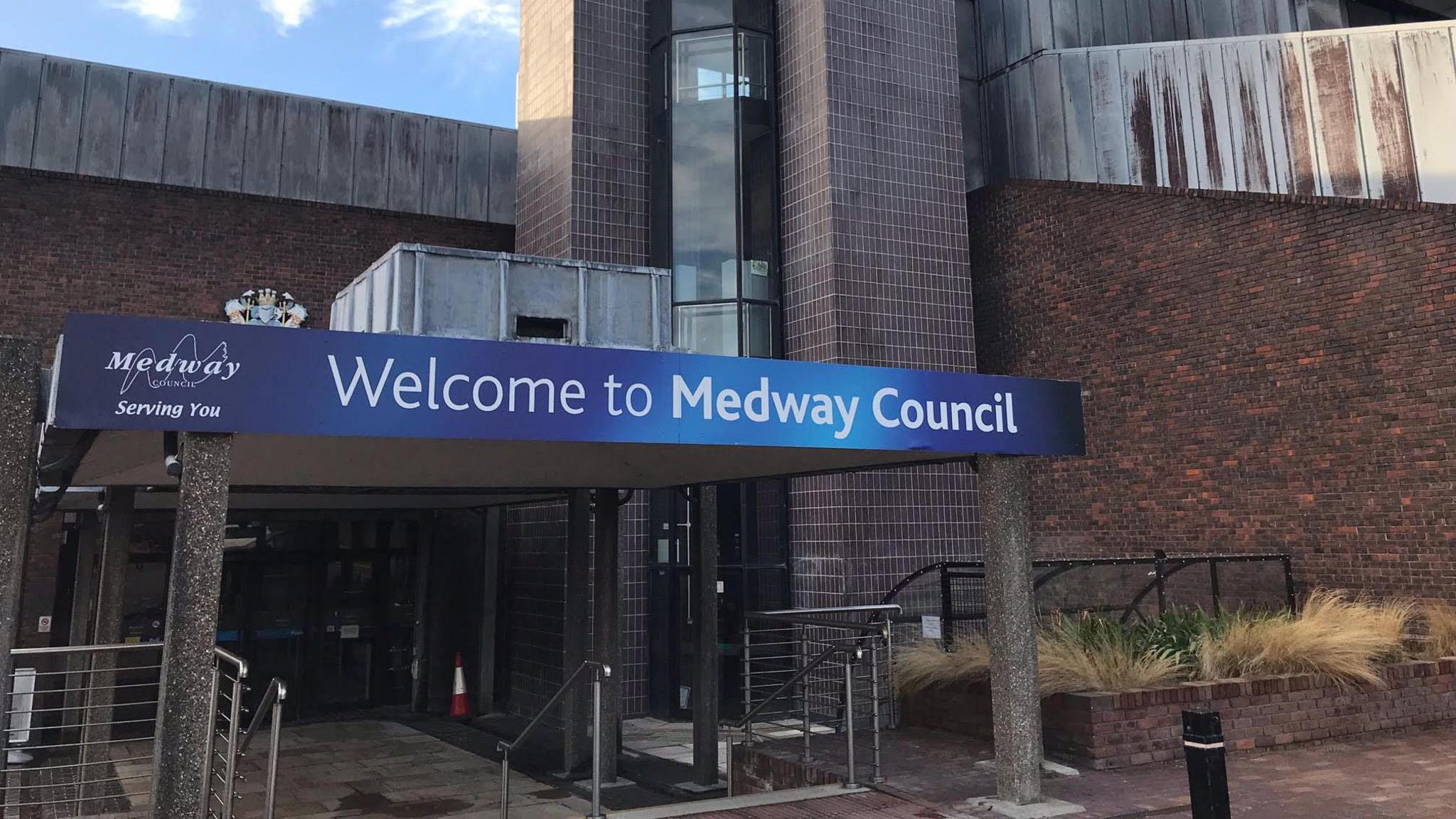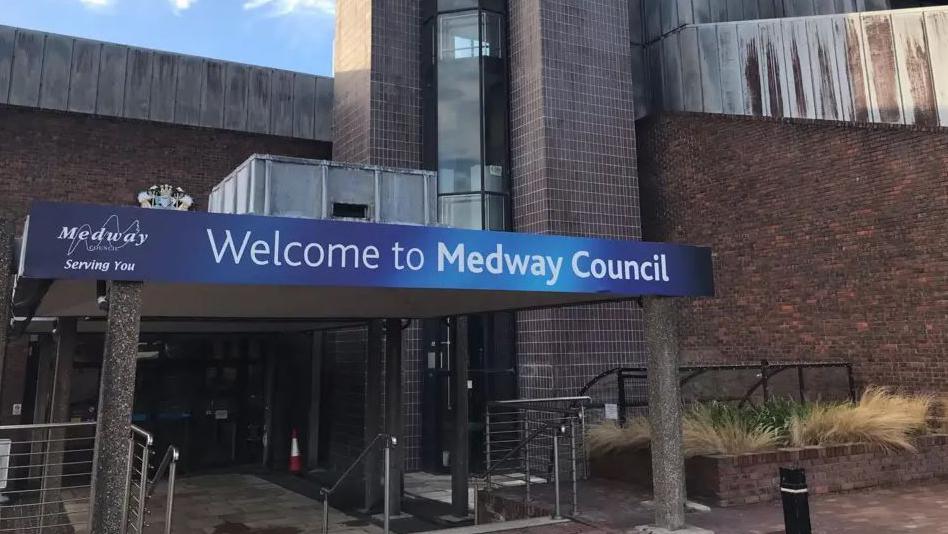Councils warned reshaping plans may not deliver

Labour hopes a new slimmed-down system of local government will be cheaper and more efficient
- Published
An influential body representing county councils has warned planned local government reforms may not deliver the intended savings.
The County Councils Network (CCN) claims Deputy Prime Minister Angela Rayner's "devolution revolution", launched last December, is in danger of hitting taxpayers' pockets if implemented on the scale planned.
In Kent, all 14 councils would be ditched in favour of a smaller number of much larger unitary authorities, possibly three or four.
CCN chairman Tim Oliver warned the potential costs of local government reorganisation could create "unsustainable new costs".
Labour hopes a new slimmed-down system of local government will be cheaper, more efficient and empower local decision-making more quickly.
Rayner's department believed £2.9bn could be saved over five years, while separate analysis by CCN showed £1.8bn savings could be clawed back if the government created 29 authorities with populations in excess of 500,000.
But the data also showed that replacing the two-tier system with 58 new unitary councils with populations as low as 300,000 could end up costing £850m over five years and deliver no long-term savings.
If true, this presents a considerable headache for the government as its reforms may create dozens of new unitaries across England, according to the Local Democracy Reporting Service.
Oliver said failure to "scrutinise and rigorously evaluate all proposals" could pile further strain on already stricken care services and come at a time when many county and district authorities face funding cuts under the Fair Funding Review.
But while there has been criticism from some Kent councillors, Vince Maple, Labour leader of Medway Council, said his was the best long-term option and represented the "perfect opportunity to take a fresh look at the map of the county and get it right".
The Ministry of Housing, Communities and Local Government added: "Councils across the country have also told us that bringing services together under one roof means residents get joined-up support when they need it most.
"Meanwhile, clearer structures mean people know exactly who's responsible for delivering their services."
Follow BBC Kent on Facebook, external, on X, external, and on Instagram, external. Send your story ideas to southeasttoday@bbc.co.uk, external or WhatsApp us on 08081 002250.
Related topics
- Published18 August

- Published26 May
